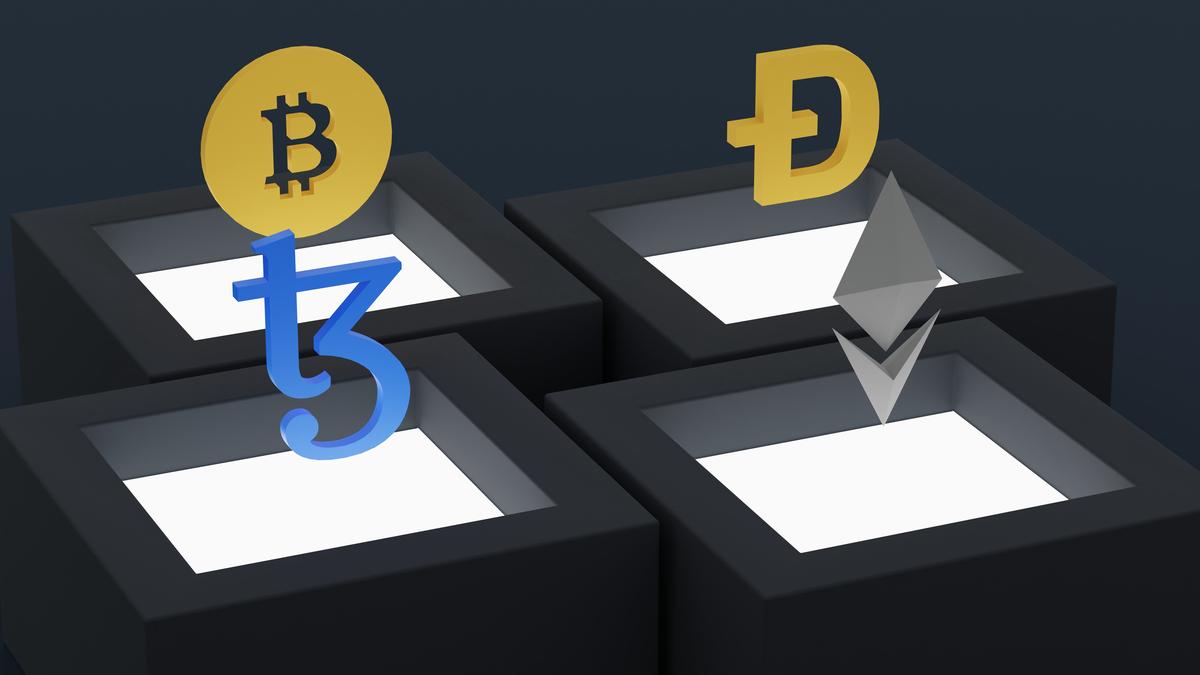The advent of Blockchain technology and Cryptocurrencies is changing the way we perceive and interact with money, ushering us into an era characterized by decentralized finance, immutable transactions, and a plethora of innovative digital assets. This digital revolution, spearheaded by Bitcoin and later embraced by countless other Cryptocurrencies like Ethereum, Polkadot, Cardano among others, has disrupted our financial systems and promises numerous potential applications beyond just currency exchange. In order to fully grasp the opportunities, implications, and future possibilities these technologies bring, we must start at the beginning, understanding the bare bones of Cryptocurrency and Blockchain technology, and proceeding to unravel their diverse applications, their investment dynamics, and the regulatory landscape that governs them.
Understanding Cryptocurrency and Blockchain
Cryptocurrency is a type of digital or virtual money that uses cryptography for security. Unlike traditional currencies, cryptocurrencies are decentralized and are not controlled by any government or central authority. They operate on technology called blockchain, which is a distributed ledger enforced by a network of computers called nodes.
Blockchain is essentially a public, digital ledger where every transaction conducted is recorded. It allows information to be distributed and accessed across multiple platforms globally, but not copied or altered. This characteristic of blockchain has made it a valuable mechanism for recording not only financial transactions, but just about everything of value.
One of the features of blockchain and cryptocurrencies is decentralization. Decentralization refers to the feature where no central authority has control in a network. This uniqueness is described as a distributed ledger. The security, transparency, and lack of a central controlling entity make decentralized technologies such as blockchain very appealing.
Understanding Cryptocurrency Mining
Mining is a term related to cryptocurrencies, and it’s an important process for many crypto coins. Mining involves using computer hardware to solve complicated mathematical problems that validate transactions. Those who use their computers to mine are rewarded for supporting the blockchain network and creating new blocks.
Tokens, Coins, and the Blockchain Economy
Tokens are a kind of cryptocurrency that represent a certain value or are used for a specific purpose. Some are used strictly as a form of money, while others can stand for a company’s share, a service, or any number of things. There’s another difference between coins and tokens – while most coins have their own independent blockchain, tokens tend to exist on existing blockchains.
Tokens have many functions – for example, they can enable holders to participate in the network or can simply be used to fuel operations within the network. They are typically used to raise funds for crowd sales, but can also serve as a substitute for other things.
Navigating the Landscape of Blockchain Opportunities
Blockchain technology and cryptocurrencies open the doors to a plethora of opportunities, especially noticeable in sectors such as healthcare, supply chain, and finance. The utilization of blockchain isn’t limited to its application as a digital currency. This technological marvel can enforce smart contracts, manage supply chains, revolutionize decentralized finance, and much more, with its hallmarks being security, decentralization, and transparency.
With regard to investing in cryptocurrencies, understanding the potential risk attached to the potential high returns is crucial. Risks can range from financial loss to complete investment failure.
For those interested in prudent investment decisions or in embracing innovative technology development, comprehending the complexities of blockchain and cryptocurrencies is critical. From its fundamental concepts such as distributed ledgers and decentralization to the mechanisms of mining and tokens, the crypto and blockchain world is ripe with opportunities for those who have the acumen to seize them.

Photo by theshubhamdhage on Unsplash
Exploring Different Cryptocurrencies
The Advent of Bitcoin: The Forefront of Cryptocurrencies
Bitcoin, the first and the most globally acknowledged cryptocurrency emerged from the shadows in 2009, conceived by an elusive individual or group known as Satoshi Nakamoto. The primary function is to facilitate transactions on a peer-to-peer basis, ideal for parties who may not have faith in each other’s reliability. The transactions are processed using a decentralized system built on the foundation of blockchain technology. Bitcoin has garnered substantial attention for its potential to yield significant returns, sparking the creation of thousands of other cryptocurrencies.
Despite being the trailblazer in the realm of cryptocurrencies, Bitcoin faces its share of hurdles, most noticeable among them being its scalability constraints. In its current stage, Bitcoin can only handle a modest 3-7 transactions per second, resulting in substantial delays during peak usage times. Additionally, substantial computational power is required for Bitcoin mining, leading to an exponential increase in energy consumption.
Ethereum: Leading the Smart Contracts Revolution
Ethereum, launched in 2015, positions itself not just as a digital currency but as a blockchain-based platform that facilitates smart contracts and Distributed Applications (DApps) to be built and operated without fraud, downtime, control, or interference from a third party. Its native cryptocurrency, Ether, fuels these operations.
The main advantage Ethereum holds over Bitcoin is its use of smart contracts, which automates the execution of a contract once pre-set conditions are met. The primary challenge Ethereum faces is tied to its scalability issues like Bitcoin. However, Ethereum 2.0, currently in progress, aims to solve this issue.
Polkadot: The Multi-Chain Framework
Polkadot is a multi-chain platform aimed at connecting various blockchains into a single unified network. Its key feature is allowing different blockchains to interact and share information in a secure, scalable environment. It also supports the creation of new blockchains.
The potential of Polkadot lies in its interoperability, allowing seamless communication between different blockchains, which are typically isolated. However, compatibility issues between blockchains may emerge as a main challenge as Polkadot is still a relatively new technology.
Cardano: The Third Generation Blockchain
Founded by one of the co-founders of Ethereum, Cardano distinguishes itself from others by its commitment to academic, peer-reviewed research as building blocks for updates to its platform. It aims to be the world’s financial operating system by establishing decentralized financial products in a manner similar to Ethereum.
Cardano’s unique layered architecture offers scalability and security benefits. Despite its ingenuity, Cardano is still in its early stages and needs to demonstrate its practical real-world use.
Delving into Cryptocurrencies
Spanning thousands of digital currencies, the crypto ecosystem is teeming with distinctive functionalities and potential uses. This extends from the privacy-centric Monero and Zcash, to Ripple’s XRP that expedites international transactions, Chainlink’s ability to tether real-world data to smart contracts, and decentralized finance tokens like Uniswap and Maker.
The key to opportunities and emerging trends in the fast-paced world of crypto and blockchain lies in comprehending these digital assets. Cultivating this understanding will help you navigate this rapidly evolving landscape.

Blockchain Technology Beyond Cryptocurrency
Healthcare Industries Embrace Blockchain
Blockchain’s footprint extends well beyond cryptocurrencies and is making significant strides in industry sectors like healthcare. In this domain, blockchain has the potential to revolutionize how personal medical records are stored and shared, fostering a single, transparent rendition of one’s health history. This breakthrough could well enhance precision medicine and propel healthcare research.
Moreover, leveraging blockchain could enhance drug traceability – a promising weapon in the fight against counterfeit pharmaceuticals. Adopting such a system could help ensure the safe delivery of drugs from manufacturers to patients, thus heightening healthcare standards and outcomes.
Financial Sector Applications
In the financial sector, blockchain is also finding disruptive applications. It reduces the need for intermediary third parties in financial transactions, allowing for faster, more efficient and cost-effective processes. For example, blockchain is used for creating decentralized digital identities, reducing fraud and identity theft.
In addition to this, blockchain makes it easier to verify that the financial transactions – from balance checks to transfers – that are made are secure and cannot be hacked or tampered with. This level of security goes beyond cryptocurrencies and can be applied to various financial processes.
Blockchain in Supply Chain Management
When it comes to supply chain management, the transparency and traceability blockchain provides are invaluable. This technology can authenticate and track products at every step of the supply chain, from raw material sourcing to delivering end-products to consumers. This adds a layer of authenticity and transparency that is lacking in traditional systems, which often suffer from falsified records and lack of transparency.
Smart contracts, which are self-executing contracts with the terms of the agreement directly written into code stored on the blockchain, can automate parts of the process and ensure that contractual obligations are met at every step of the supply chain.
Exploring Blockchain Applications
In addition to the financial sector, blockchain technology has also been making waves in a range of different industries. For instance, real estate transactions could leverage this technology to operate more efficiently and minimize reliance on third-party intermediaries.
Educational institutions could use blockchain to maintain a trustworthy and globally recognized repository for academic certificates. Moreover, the voting system could be revolutionized by utilizing blockchain technology to ensure a secure, transparent process for casting and tallying votes, thereby eradicating various issues associated with traditional systems.
Thanks to its immutability, blockchain technology has shown significant potential wherever record integrity is indispensable. This is why it is seeing increased adoption across multiple industries. And while cryptocurrencies remain the most popular application, blockchain technology certainly holds promise for many other applications.

Investing in Cryptocurrency
Navigating Cryptocurrency Investments
Investing in cryptocurrencies involves buying, trading, and staking digital assets. Entering the cryptocurrency market is typically initiated by purchasing coins or tokens from established cryptocurrency exchanges using traditional fiat currencies such as the US Dollar or Euro. These could either be globally recognized cryptocurrencies like Bitcoin (BTC) or Ethereum (ETH) or less-known currencies referred to as altcoins.
Trading, on the flip side, necessitates the exchange of one type of cryptocurrency for another. This process requires an in-depth understanding of market trends and indicators, as it often involves forecasting potential price fluctuations.
Lastly, staking represents a distinctive aspect of certain cryptocurrencies that operate via proof-of-stake systems or its variants. Rather than mining, investors can stake, or set aside, their coins for a certain duration. During this period, these staked coins play a crucial role in validating transactions and maintaining network integrity. As a reward, staking investors acquire returns over time.
Investment Risks and Market Dynamics
Despite the potential profits, it’s important to remember that cryptocurrency markets are highly volatile, subject to rapid, significant price changes. Like any form of investing, the value of what you put in can rise or fall. For this reason, it’s imperative to only invest money that you can afford to lose.
Moreover, the market dynamics of cryptocurrencies are still developing, influenced by factors ranging from regulatory news to technological advancements and macroeconomic trends. But unlike traditional financial markets, the cryptocurrency market operates 24/7, leading to more frequent changes.
Crypto and Blockchain Opportunities
As the underlying technology of cryptocurrencies, blockchain boasts potential opportunities beyond digital coins. Many industries see the value of a secure, decentralized ledger system, including finance, supply chain, healthcare, and real estate. For instance, Decentralized Finance (DeFi) is revolutionizing financial systems by providing decentralized alternatives to traditional banking services like borrowing, lending, and earning interest. Meanwhile, the rise of Non-fungible Tokens (NFTs) is creating opportunities in art, entertainment, and property rights.
Investments can also be made into blockchain companies working on these innovative technologies. Each day, more startups are entering the space, from creating new cryptocurrencies to building superior blockchain-based applications. Publicly traded companies invested in blockchain technology also offer a way to be part of this potential growth.
Guidelines for Cryptocurrency Investments
Investing effectively in the unpredictable realm of cryptocurrencies necessitates some essential habits. These include diversifying your holdings across different digital assets, conducting in-depth research before any investment, and ensuring your investment does not exceed what you are willing to forgo. Also, it’s crucial to secure your digital wallets adequately to prevent any potential theft.
Comprehending the fundamentals of blockchain technology is integral to making informed investment decisions. Much like conventional investments, achieving long-term prosperity in the crypto sphere heavily relies on an in-depth understanding of the market and current advancements.
Furthermore, it’s paramount to train oneself to cope with the emotionally-fuelled fluctuations of the crypto market. It’s easy to fall prey to hasty decisions driven by the fear of missing out (FOMO) or panic-selling in response to market dips. Instead, it’s advisable to develop a long-term strategy with an alignment to your risk acceptance level and investment goals.
Lastly, keeping yourself informed about the changing regulatory climate helps to understand its effects on cryptocurrency prices and spot possible opportunities. But it’s important to remember that, unlike traditional financial markets, global regulatory frameworks for crypto are still developing, rendering the sector riskier.

Regulation and Legal Aspects of Cryptocurrency
Grasping Cryptocurrency Regulations
In recent years, cryptocurrency and blockchain technologies have experienced fast-paced expansion and diversification. However, this growth does come with a variety of challenges. Authorities worldwide are in a constant effort to grapple with and regulate these novel digital assets where necessary. Primary concerns encompass illegal activities like money laundering, consumer protection, tax regulation, and fostering technological progress.
SEC and Cryptocurrencies
The SEC views initial coin offerings (ICOs), token sales, and other funds raising projects in the crypto space as securities offerings, which should follow securities laws to protect investors. Tokens such as Ethereum and Bitcoin are not considered securities due to their decentralization but ICOs for new cryptocurrencies invariably are.
CFTC’s Take on Crypto
The Commodity Futures Trading Commission (CFTC) views cryptocurrencies, particularly Bitcoin, as a commodity. This allows the CFTC to exercise its legal mandate over futures and other derivatives based on these digital assets.
IRS’s Classification of Cryptocurrencies
The Internal Revenue Service (IRS) classifies cryptocurrencies as property. This means any transaction involving cryptocurrency, such as Bitcoin, is subject to capital gains tax just like any other property. The IRS issued a guidance detailing the appropriate tax treatment for cryptocurrencies and the obligation of taxpayers to report their crypto transactions.
Cryptocurrency Anti-Money Laundering Laws
Cryptocurrencies can facilitate illegal actions due to their largely unregulated and anonymous nature. Consequently, regulators have been implementing anti-money laundering (AML) and know-your-customer (KYC) regulations. In the United States, the Financial Crimes Enforcement Network (FinCEN) governs these regulatory aspects. FinCEN mandates that cryptocurrency exchanges follow AML and KYC procedures, including reporting transactions over $10,000 and any suspicious activities.
Current Legal Challenges in Cryptocurrency
The regulatory landscape surrounding cryptocurrencies continues to evolve. Legal challenges exist primarily due to the lack of comprehensive legislation in this domain and the different interpretations of existing laws by different regulatory bodies. Confusion also arises from the global nature of cryptocurrencies, where transactions are borderless and thus can fall under the jurisdiction of multiple countries.
The Future of Crypto and Blockchain Regulations
The anticipated progress in the regulatory landscape is predicted to bring much-needed stability and transparency to the world of digital currency. The collective goal of regulatory bodies is to balance encouraging innovation, preserving consumer rights, and deterring illicit activities. There may be policies that extend safe harbor to certain blockchain initiatives, or they might classify digital assets in a more granular and flexible manner, depending on evolving requirements.

Future of Cryptocurrency and Blockchain
Diving Into Cryptocurrency and Blockchain Technology
If you aren’t familiar, cryptocurrencies stand as a digital or virtual variant of currency. They rely on advanced encryption protocols for security. A distinctive feature of cryptocurrencies is their decentralized set-up, which depends on blockchain technology. This technology operates as a distributed ledger, maintained by a collection of computer systems known as nodes. Implementing crypto-assets can enhance efficiency levels and fortify global financial systems.
Future Forecast for the Crypto and Blockchain Ecosystem Growth
Given the current scenario and excitement around virtual currencies, it’s expected that more companies and industries will invest in the crypto market, leading to remarkable ecosystem growth. Corporations anticipate using these technologies to uncover new business models and strategies to enhance customer experience and streamline operations.
Banks like J.P. Morgan Chase are creating JPM Coin to shape the future of finance and simplify payment transfers. Facebook’s Diem (formerly called Libra) aims to provide the unbanked with financial services. These examples pave the way for more industries to follow suit, further nourishing the crypto ecosystem.
Technological Innovations in Blockchain
Blockchain is not only about cryptocurrencies; it’s a transformative technology enhancing the aspects of multiple industries by offering trust, security, and efficiency. The future of blockchain will witness technological advancements where ‘Smart contracts’ will revolutionize legal sectors reducing fraud by ensuring the contractual performance.
Moreover, integration with AI, IoT, or Big Data technologies will leverage blockchain’s potential to new heights. As an example, AI could manage smart contracts by using data effectively to trigger contract clauses.
How Will Cryptocurrency and Blockchain Transform Various Sectors?
Blockchain and cryptocurrency are anticipated to disrupt various sectors, transforming the way we conduct business and interact on a day-to-day level. Financial institutions will experience significant changes in fraudulent activity mitigation, cost reduction due to operational efficiency, and improvements in the confidentiality of personal data.
The healthcare sector could implement blockchain for secure patient record-keeping, while the agriculture industry could ensure transparency in food supply chains. The academic sector may use blockchain to verify the authenticity of qualifications.
Challenges Ahead
Despite the positive future forecast, there are still some obstacles to overcome. For instance, regulatory challenges, where governments worldwide are grappling with the question of how to incorporate virtual currencies within their existing financial regulations.
Security is another hurdle, as cybercriminals are becoming more crafty in hacking wallets and stealing cryptocurrencies. Prevalent skepticism also plays a substantial role, with people unsure and often cautious about embracing this new technology.
Investing in Cryptocurrency
Investing in cryptocurrency remains uncertain due to its volatile nature. Nevertheless, for interested investors, it’s essential to remain up-to-date with market trends, understanding the fundamentals of blockchain and cryptocurrencies, and seeking professional advice.
Blockchain and cryptocurrency technologies are evolving, and their potential applications should continue to multiply across various sectors. With appropriate regulation and security measures, these innovations could significantly alter the landscape of many industries, holding promise for the future.

As we forge ahead, the role of Cryptocurrency and Blockchain in our day-to-day life continues to grow exponentially, shaping and influencing sectors beyond what we could have envisioned a decade ago. Ecosystem growth, technological innovation, and the relentless pursuit of application have placed these technologies at the heart of future development. While challenges remain, such as regulations and market volatility, the potential for disruption and transformation that Cryptocurrency and Blockchain carry is profound. As we close this journey of exploring these technologies, it is evident that what we’re witnessing is a new dawn – a frontier where legacy systems and innovative digital assets converge, leading us into an era of advanced, secure, and decentralized world.
